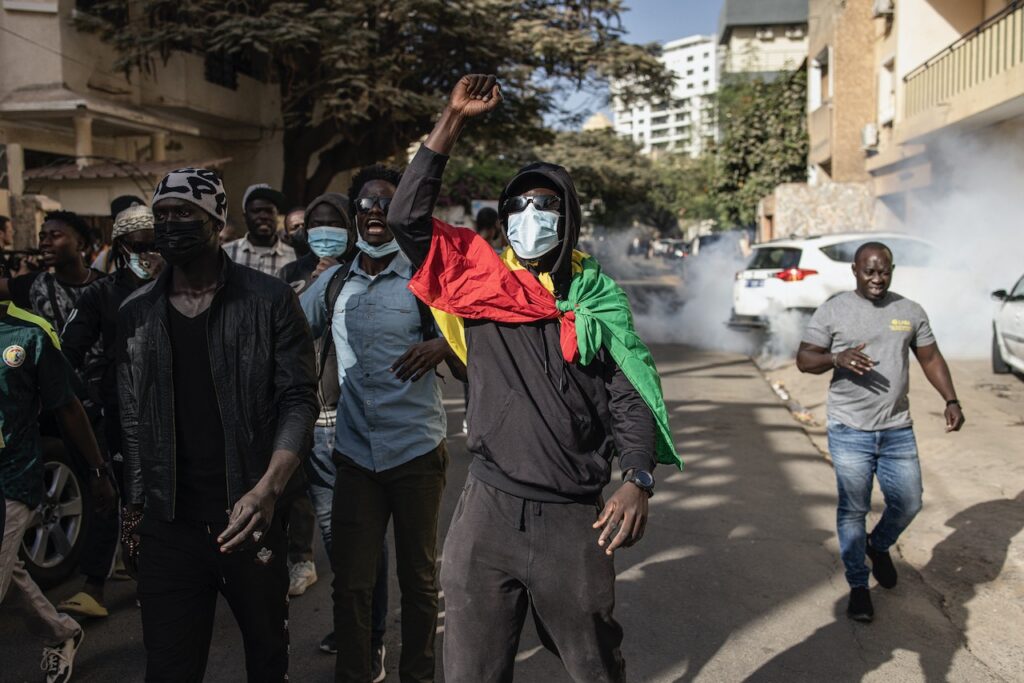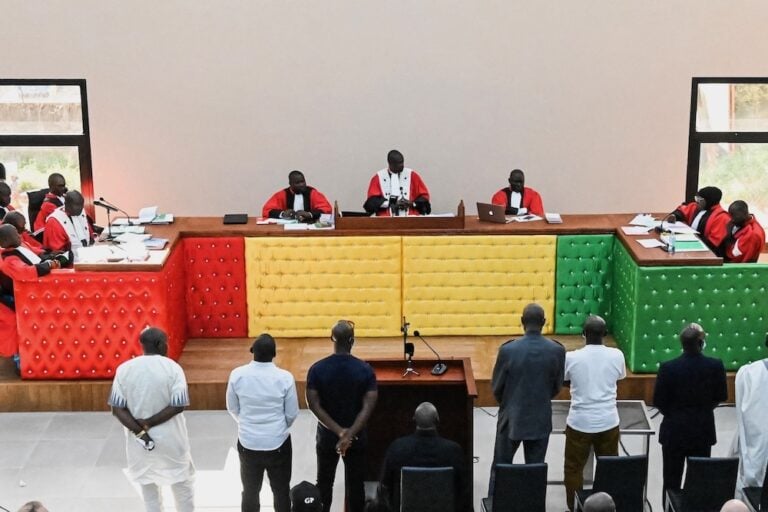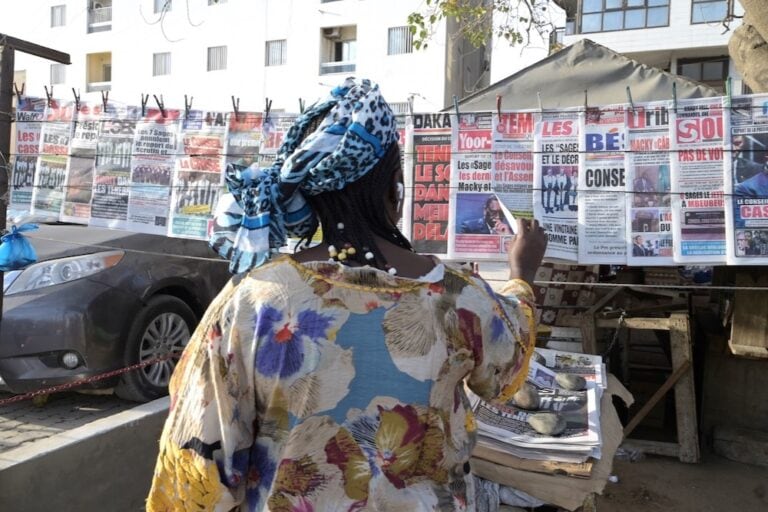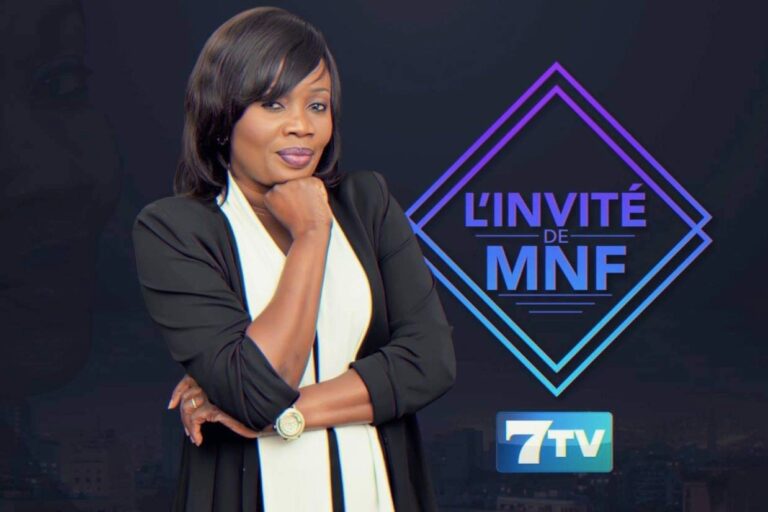As Senegal's media landscape deteriorates, Walf TV faces the threat of a permanent withdrawal of its licence.
This statement was originally published on mfwa.org on 6 February 2024.
The Media Foundation for West Africa (MFWA) strongly condemns the suspension of Walf TV on February 4, 2024, and calls on the Senegalese authorities to lift the suspension.
Walf TV’s Director, Cheikh Niasse, read in part the order to shut down from the government. Niasse gave the information during a special programme dedicated to the demonstrations against the postponement of the presidential election that was scheduled for February 25, 2024.
The order said the Ministry of Communication, “in agreement with the Conseil national de régulation de l’audiovisuel (CNRA), has ordered the broadcasters of Walf TV to temporarily cut the signal on the grounds of incitement to violence.”
Viewers can since not access Walf TV on DTT and Canal+, a leading operator of pay television in French-speaking Africa.
Clashes broke out on February 4, 2024, in Dakar between security forces and demonstrators protesting against the unprecedented postponement of the presidential election announced the day before by the Head of State, Macky Sall, amid a highly explosive atmosphere.
Besides its suspension on February 4, 2024, Walf TV is now under the threat of a permanent license withdrawal. This move by the Senegalese government is viewed by journalists and media experts as another severe blow to press freedom in the country.
The government also shut down the internet as Senegalese poured into the streets to protest the postponement of the elections.
In a statement, on its Facebook page, journalists’ union Syndicat des Professionnels de l’Information et de la Communication du Sénégal (SYNPICS), strongly condemned the interruption of Walf TV’s signal.
“Walf TV, like all the country’s television channels, is entitled to hold a special programme on the country’s political and institutional situation, marked by the suspension of the electoral process decided by the President of the Republic on Saturday. This suspension is all the more alarming in that it comes without any of the ‘formal notice’ procedures laid down in the Press Code, and without any objective complaint being made against the television station’s management. Neither was it carried out by the competent administrative authority,” SYNPICS stated.
The channel was suspended for a week on February 10, 2023, for broadcasting scenes of violent demonstrations. The media regulator, the Conseil national de régulation de l’audiovisuel (CNRA), alleged that the channel had provided irresponsible coverage of demonstrations.
In March 2021, the CNRA also suspended the channel’s programmes for three days, alleging that it had repeatedly broadcasted images of an unrest that followed the arrest of political opponent Ousmane Sonko.
Apart from the media being suspended, its journalists were also targeted. On November 13, 2023, officers with the gendarmerie’s Colobane research section in Dakar arrested Pape Sané for allegedly spreading false news under Article 255 of the Senegalese penal code. Sané was arrested after a Facebook post in which he criticised the sacking of the Commander of the gendarmerie, General Jean Baptiste Tine. The commander was fired in March 2021 after demonstrations over the arrest of the Senegalese opposition leader Ousmane Sonko.
Pape Ndiaye, a legal columnist for Walf TV, was arrested on March 3, 2023, following comments he made about the alleged rape case involving opposition leader Ousmane Sonko and a certain Adji Sarr, the complainant in the rape case.
These arrests and the latest suspension of Walf TV, the third in about three years, confirm the growing perception that the critical media organisation is targeted by the authorities. Such actions undermine the fundamental principles of democracy, as a free press is essential for an informed citizenry and a transparent political process. It is our opinion that the government’s move against Walf TV violates not only the rights of journalists but also the public’s right to access diverse sources of information.
The MFWA is deeply concerned about the widespread repression of freedom of expression in Senegal and joins the media in Senegal to condemn this umpteenth attempt.



